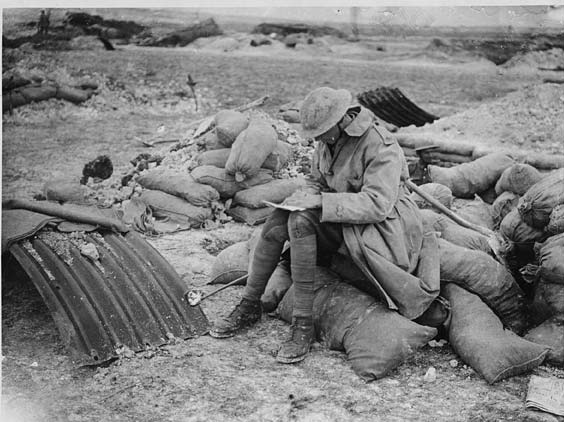Historian Fears That WW1 Commemorations Will Be 'Toned Down' For Fear Of Causing 'Offence'
A Downing Street historian has warned that the 100th anniversary of the First World War could be “toned down” for fear of “offending” Remainers or Brexitiers.
Sir Anthony Seldon, vice-chancellor of the University of Buckingham, called for the "major" commemoration in 2018, which will mark the end of the war, to be "properly marked".
He added that the importance of commemorating the war should be “etched onto the young”, most of whom do not have “the haziest idea about its significance”. He said:
"Major anniversaries on this scale are very rare and need to be properly marked.
"The bloodiest war in the history of the world till then needs to leave behind a very significant legacy.
"There is a danger that the fear of offending one side or the other on Brexit will lead to the centenary being muted."
The university chief urged the Government to keep alive the memory of troops who were killed in the First World War.
He suggested doing so by fulfilling the wishes of a young officer who wanted a pathway of remembrance to be built along the Western Front.

2nd Lieutenant Alexander Douglas Gillespie wrote from the frontline shortly before he was killed in 1915, asking for a 500-mile pathway to be erected with collaboration between British and French governments.
Sir Anthony, who is an "historical advisor" to Downing Street, said the monument would remind "all nationalities" of the "perils of conflict".
But the academic warned that failing to create the pathway connecting "cemeteries and sites of battles" would "consign these memorials to a long, painful retreat into irrelevance"
He added that an announcement for the project needed to be made "before the 100th anniversary of the Armistice".
Dubbed by Lt Gillespie as "the most beautiful road in the world", the path would feature commemorative points at which travellers would be reminded of events which took place there.
The officer, from the Argyll and Sutherland Highlanders line infantry regiment, said it would be "a fine broad road in the no man's land between the lines from the Vosges to the sea, with paths for pilgrims on foot" and fruit trees.
Almost 900,000 British and Commonwealth troops died in the war between 1914 and 1918.









